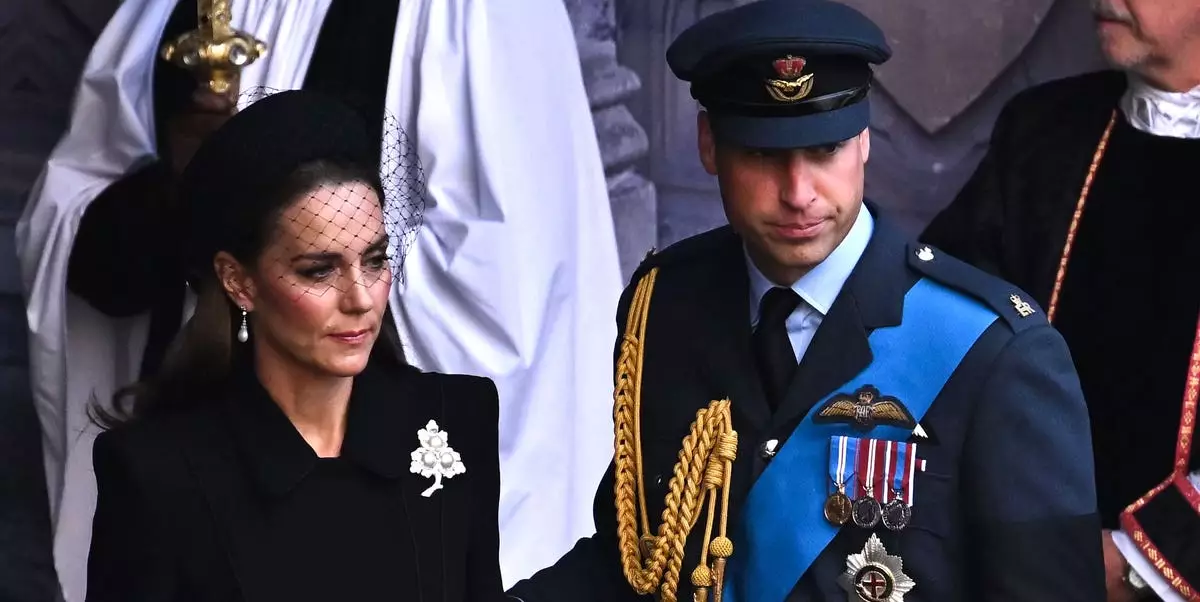On April 26, 2025, a significant moment unfolded in Vatican City as Prince William stood in for the British royal family at the funeral of Pope Francis. The occasion not only marked a profound loss for millions but also highlighted the intricate tapestry of royal duties and historical precedents. In a world where symbolism carries immense weight, the choice of Prince William over King Charles III to represent the monarchy speaks volumes about both tradition and the evolving nature of the royal family.
The decision for Prince William to attend was predicated on a blend of protocol and deep familial connection, neither of which can be understated. The solemnity of a funeral, especially one for a leader of the Catholic Church, necessitates not just attendance but a genuine expression of respect and sorrow. William’s presence, rather than that of his father, followed historical precedents that dictate the monarch’s engagement in significant state events. King Charles’s non-attendance, explained as adhering to royal protocol, reflects a longstanding tradition: Sovereigns traditionally refrain from attending funerals of other heads of state.
Absence of the Princess of Wales
As if to emphasize the carefully curated dynamics of royal representation, Kate Middleton’s absence from this poignant event was not surprising. Historical patterns indicate that the spouses of royal family members do not always accompany them to funerals of this magnitude unless specifically warranted. A notable instance is when then-Prince Charles attended Pope John Paul II’s funeral without Camilla Parker Bowles. This choice reflects a carefully crafted royal image and a deep respect for the solemnity of the occasion—pragmatic decisions that allow royal family members to maintain a semblance of authority amidst emotional turmoil.
The royal family’s portrayal during high-profile moments is deliberate and strategic. In choosing William, Buckingham Palace ensures that the monarchy’s presence is not only respected but also relatable, as he represents a generational shift that connects with younger audiences. Kate Middleton’s absence could be construed as further distancing from the formalities of royal duties, focusing instead on their family’s evolving role in contemporary society.
A Legacy of Compassion and Faith
Pope Francis’s legacy is one marked by compassion, unity, and an unwavering commitment to humanity’s shared struggles. In message after message, he championed environmental stewardship, social justice, and interfaith dialogue, leaving an indelible mark on people of all faiths. King Charles’s tribute to the late pontiff poignantly encapsulates this legacy, reflecting a profound personal connection that resonates with many. His words, laced with admiration and sorrow, suggest that Francis’s influence transcends faith; it speaks to the human spirit.
Expressing condolences on behalf of himself and the Queen, Charles highlighted his admiration for the pope’s dedication to both Creation and community. This focus on legacy could potentially steer royal duties towards more personal and global engagements in the future. The royal family’s portrayal during this critical moment could prompt them to adopt a more proactive role in addressing social issues, continuing the work that Francis so passionately championed.
The Royal Family’s Role in Modern Times
With Prince William embodying a bridge between royal tradition and contemporary values, his role at the funeral speaks not only to the family’s adherence to historical customs but also indicates an openness to proactively engage with pressing global issues. In a time when traditional institutions often face skepticism, the presence of royals at monumental events such as papal funerals serves to reaffirm their commitment to cultural and spiritual conversations.
The bridge that William creates extends beyond mere representation; it signifies the royal family’s potential influence in global discussions surrounding faith and morality. As the world increasingly grapples with existential challenges, the royal family can leverage their visibility to shine a light on significant causes, continuing the legacy that the late Pope Francis fervently advocated.
Embracing this balance of duty and ethical obligation could see a more engaged monarchy. The question remains, however, whether the royal family can successfully navigate the complexities of their historical role while embracing the expectations of a modern audience, all the while honoring the legacies of those who have come before them—like Pope Francis.

